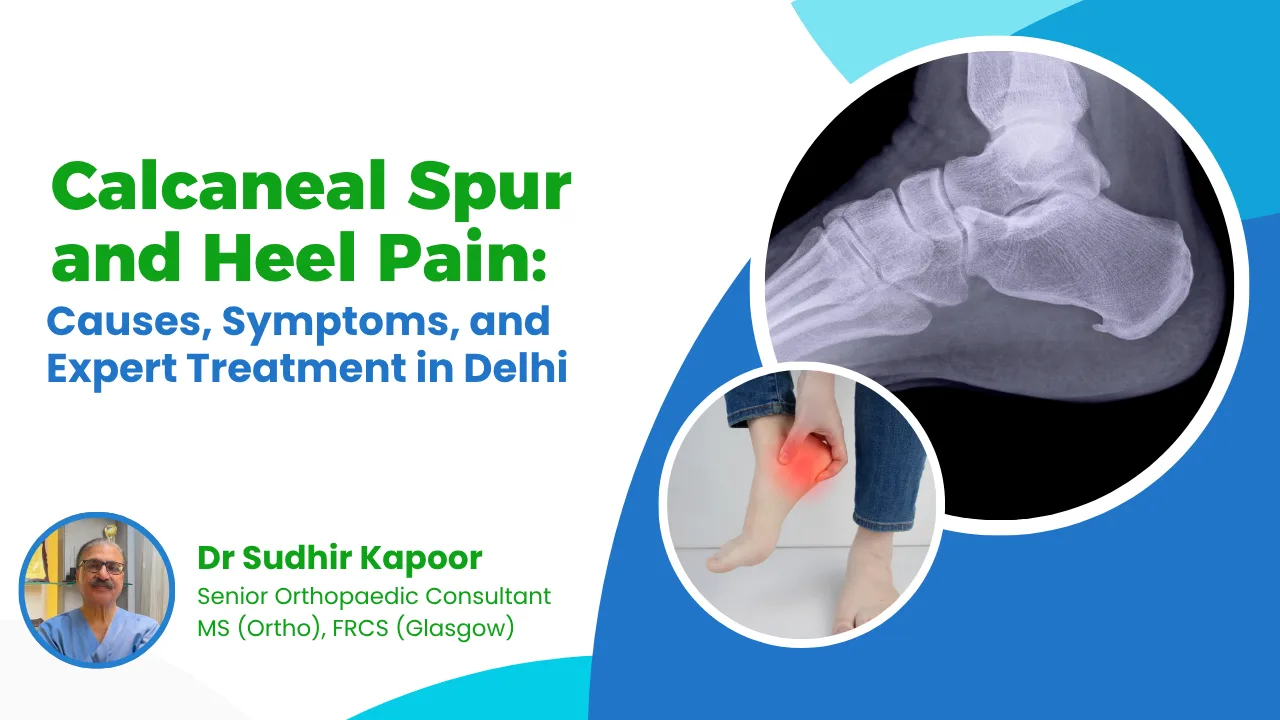Chronic joint pain is a debilitating condition affecting millions of people worldwide. Whether caused by arthritis, injury, or other underlying conditions, managing joint pain is crucial for maintaining a good quality of life. Dr. Sudhir Kapoor, one of Delhi’s most respected orthopaedic surgeons with over 40 years of experience, offers valuable insights into understanding and effectively managing chronic joint pain.
Understanding Chronic Joint Pain

Chronic joint pain is defined as pain that persists for more than three months. Unlike acute pain, which serves as a warning signal of injury, chronic pain lingers and can significantly impact daily activities. Common causes of chronic joint pain include osteoarthritis, rheumatoid arthritis, bursitis, gout, and past injuries that have not healed properly.
Dr. Sudhir Kapoor explains that early diagnosis is key to managing chronic joint pain effectively. “Many patients tend to ignore the initial signs of joint pain, thinking it will go away on its own. However, when pain persists, it’s essential to seek medical advice to determine the underlying cause and begin appropriate treatment.”
Expert Tips for Managing Chronic Joint Pain
Managing chronic joint pain often requires a comprehensive approach that combines lifestyle changes, medications, physical therapy, and, in some cases, surgical intervention. Here are Dr. Kapoor’s expert tips for managing chronic joint pain:

1. Maintain a Healthy Weight
Excess weight places additional stress on weight-bearing joints, particularly the knees, hips, and spine. Dr. Kapoor emphasises that maintaining a healthy weight can significantly reduce joint pain and prevent further joint damage. “Weight management is crucial, especially for patients with osteoarthritis. Even a small reduction in weight can lead to substantial improvements in pain levels.”
2. Stay Active with Low-Impact Exercises
Regular physical activity helps maintain joint function and reduces stiffness. However, high-impact exercises can exacerbate joint pain. Dr. Kapoor recommends low-impact exercises such as swimming, cycling, and walking. “Staying active is essential, but it’s important to choose activities that don’t put too much strain on the joints. Low-impact exercises help maintain flexibility and strengthen the muscles around the joints, providing better support.”
3. Use Medications Wisely
For many patients, medications play a vital role in managing chronic joint pain. Over-the-counter pain relievers like ibuprofen and acetaminophen can help reduce pain and inflammation. Dr. Kapoor advises patients to use these medications as directed and consult their doctor before starting any new medication regimen. “While medications can provide relief, they should be used in conjunction with other treatment strategies to achieve the best results.”
4. Physical Therapy and Rehabilitation
Physical therapy is a cornerstone in the management of chronic joint pain. A skilled physical therapist can design a personalized exercise program that strengthens the muscles around the joints, improves flexibility, and reduces pain. Dr. Kapoor highlights the importance of regular therapy sessions, stating, “Physical therapy is not just about pain relief; it’s about improving the overall function of the joint and preventing future complications.”
5. Consider Surgical Options When Necessary
In cases where conservative treatments fail to provide relief, surgical intervention may be necessary. Dr. Kapoor, with his extensive experience in orthopaedic surgery, notes that joint replacement surgery, such as knee or hip replacement, can be highly effective in alleviating chronic pain and restoring mobility. “Surgery is often seen as a last resort, but for many patients, it can be life-changing. Advances in surgical techniques and post-operative care have made joint replacement surgeries safer and more effective than ever.”
Why Choose Dr. Sudhir Kapoor for Joint Pain Treatment
Dr. Sudhir Kapoor’s extensive experience in the field of orthopaedics makes him one of the best choices for chronic joint pain treatment in Delhi. With over 40 years of experience, Dr. Kapoor has led the Orthopaedic Departments at prestigious institutions such as Lady Hardinge Hospital, ESI Hospital in Basaidarapur, and the Indian Spinal Injury Centre, SGT in Delhi. His deep understanding of orthopaedic conditions and his compassionate approach to patient care have earned him a reputation as one of the best orthopaedic surgeons in the region.
Conclusion
Chronic joint pain can be managed effectively with the right combination of treatments and lifestyle changes. By following these expert tips from Dr. Sudhir Kapoor, patients can take control of their joint health and improve their quality of life. Whether you’re seeking advice on conservative treatments or considering surgery, consulting with an experienced orthopaedic surgeon like Dr. Kapoor is the first step toward achieving lasting joint pain relief.





